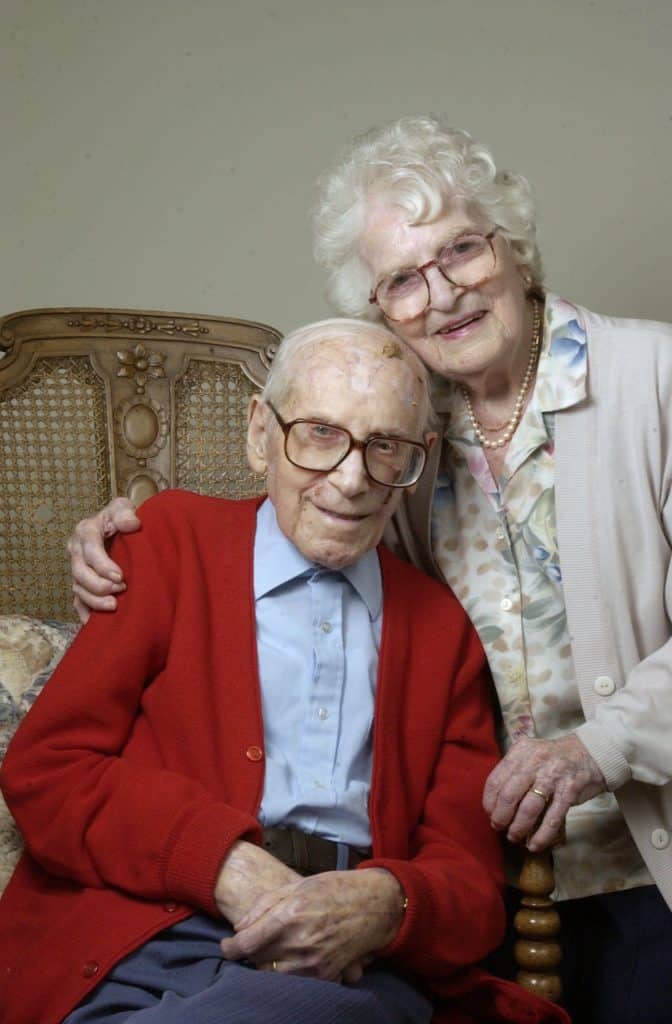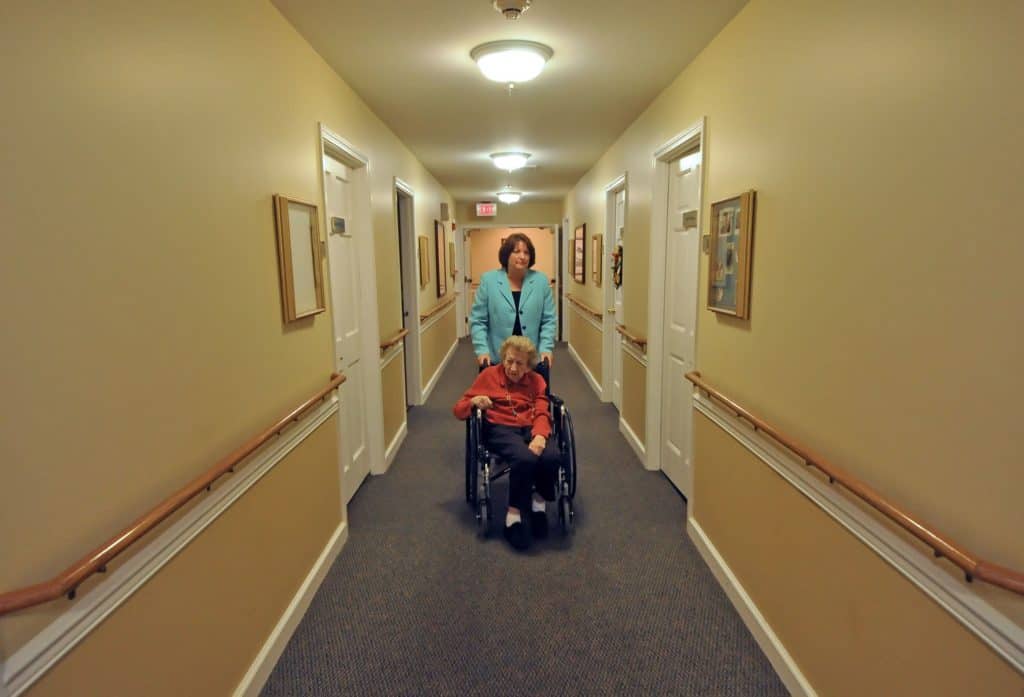Who Will Take Care of You When You’re Old?
Ally Sheldon, American Renaissance, April 22, 2017

Credit Image: Veronika Lukasova/ZUMAPRESS.com
Home Instead Senior Care is a company that sends caregivers to private homes to help look after elderly people. In December, 2010, Home Instead paid $150,000 to settle a racial bias suit filed by the US Equal Employment Opportunity Commission (EEOC).
The EEOC claimed that two Home Instead offices in Maryland used a method of coding called “circle dots” to identify clients who preferred white caregivers. Speaking for the EEOC, Attorney Debra Lawrence stated, “We brought this lawsuit to remind employers that race-based decision making has no place in the modern workplace.”
Clients were not telling Home Instead whom they could hire. They were simply expressing a desire to be looked after by white people.
The elderly population is increasing. According to the Census Bureau, the population of US adults over age 65 will double from 40 million today to 80 million by 2050. Eighty percent of those 80 million people will be white, and they will probably not be able to decide who will be coming into their homes to take care of them during what may be the most vulnerable period in their lives.

Credit Image: © Michael S. Wirtz/TNS/ZUMAPRESS.com
I have several years of experience as an in-home caregiver and have monitored the care of clients in assisted living facilities. I have seen first-hand the challenges old people face, and I’m worried about the lack of control elderly white Americans have over who looks after them.
When I arrive in a home, there is a care plan for the client listing medications, allergies and general notes for the caregiver. In many cases, the care plan may read “no black caregivers” or “no African American caregivers or client will be afraid and lock herself in the bathroom” or “client does not want anyone who does not speak English.”
Preferences of this kind are not made public; only the family, the agency, and the caregiver are likely to know. In my experience, it is not uncommon for whites to ask that they be looked after by whites, and the agency will generally try to honor that request — and keep quiet about it. A problem can arise if there are simply no whites available for the assignment.
While I understand employers cannot discriminate in hiring, I don’t want my grandmother or anyone’s elderly relative hiding in the bathroom. Can an agency like Home Instead dictate to people whom they can and cannot have in their own homes? Must the rights of privacy and home ownership be sacrificed to political correctness?
An agency will let you choose the sex of your caregiver. If you need someone who seeks Spanish, the agency will try to make an accommodation. If the client is from Jamaica and would prefer someone from the same culture, the agency will also try to make an accommodation.
Do people of other races express a preference for caregivers of their same race? I don’t know. I have worked with only a few Asian or Hispanic clients and no blacks. This may have been the luck of the draw or because non-whites frequently ask for same-race caregivers, in which case I would not be sent to their homes.
From the caregiver’s perspective, if a black family would rather have a black caregiver, I would understand. If a Hispanic family wanted someone fluent in Spanish, I would respect that decision. I doubt many caregivers would take offense or call the EEOC.
Recently I had a conversation with the owner of a home healthcare agency who said, “I wish we could tell people they have to accept whoever we send, and they can’t discriminate by telling us we can’t send black or Hispanic people.”
For a moment I forgot I was talking to my boss and blurted out, “You can’t tell people who they can and cannot have in their own homes. A lot of these people have never had a black or Hispanic person in their home. They’re in a vulnerable state and the last thing they want is anyone they feel they can’t trust taking care of them.”
Her reply was, “We can’t discriminate in our hiring so we’ll tell them they can’t discriminate or they can’t work with us. That generation has to get over it.”
Get over it? Yes, I’m sure someone in the beginning stages of dementia or in the end stages of Alzheimer’s disease will get over it with no trouble.

Credit Image: © Diedra Laird/MCT/ZUMAPRESS.com
I believe the majority of caregivers who work in homes and in assisted living facilities are well-trained, competent, caring people. And I want to believe caregivers will always act in their client’s best interest. However, there is unease and outright animosity between the races, and I worry about what this will mean for millions of Americans who need care.
The solution is simple: Let elderly Americans — even white people — choose the people who look after them. Let them choose without interference from the home healthcare agency, the EEOC or anyone else. The transition from being independent to being cared for is never easy, but it will be easier if we accept individual choices rather than challenge them.















